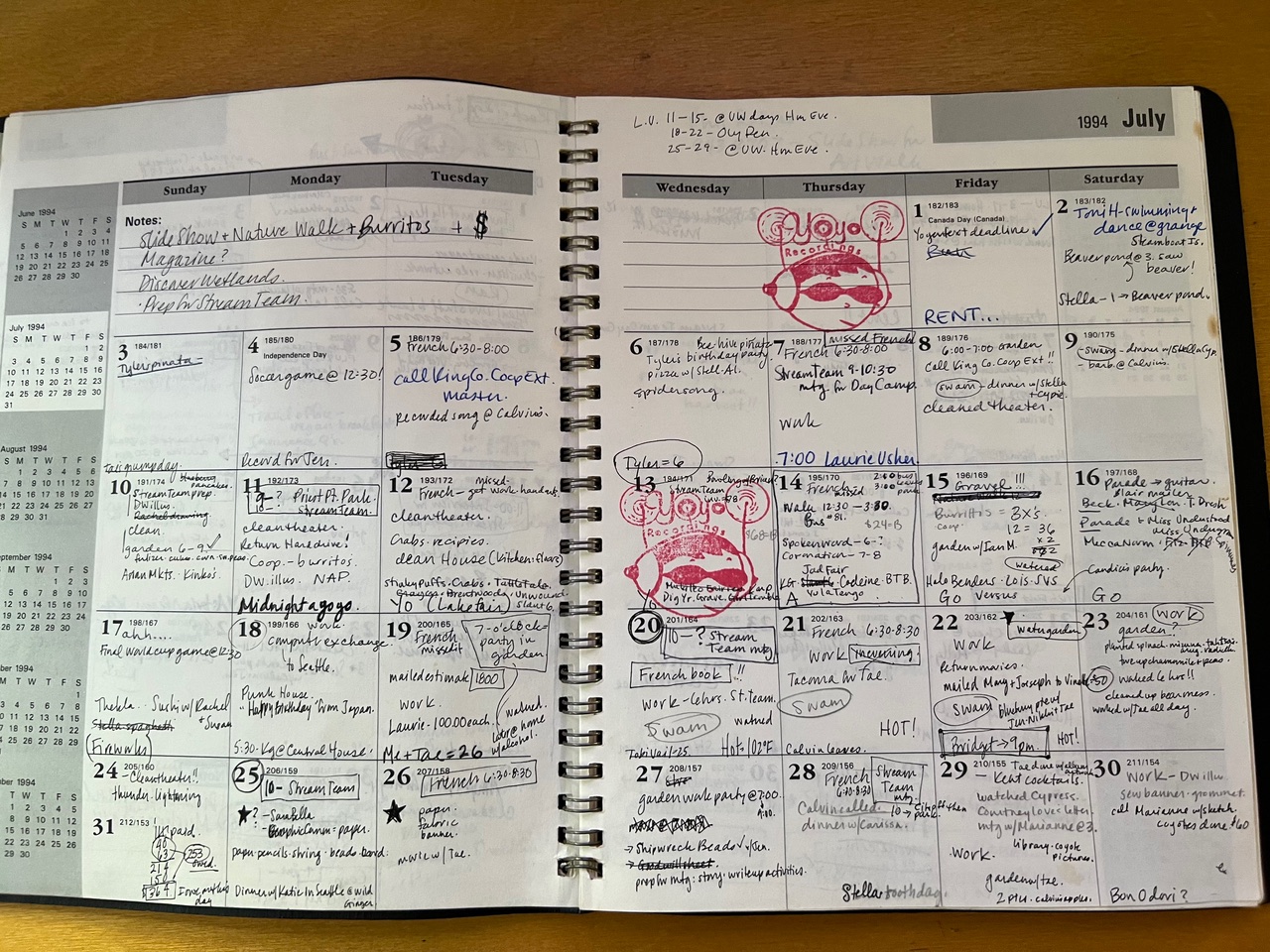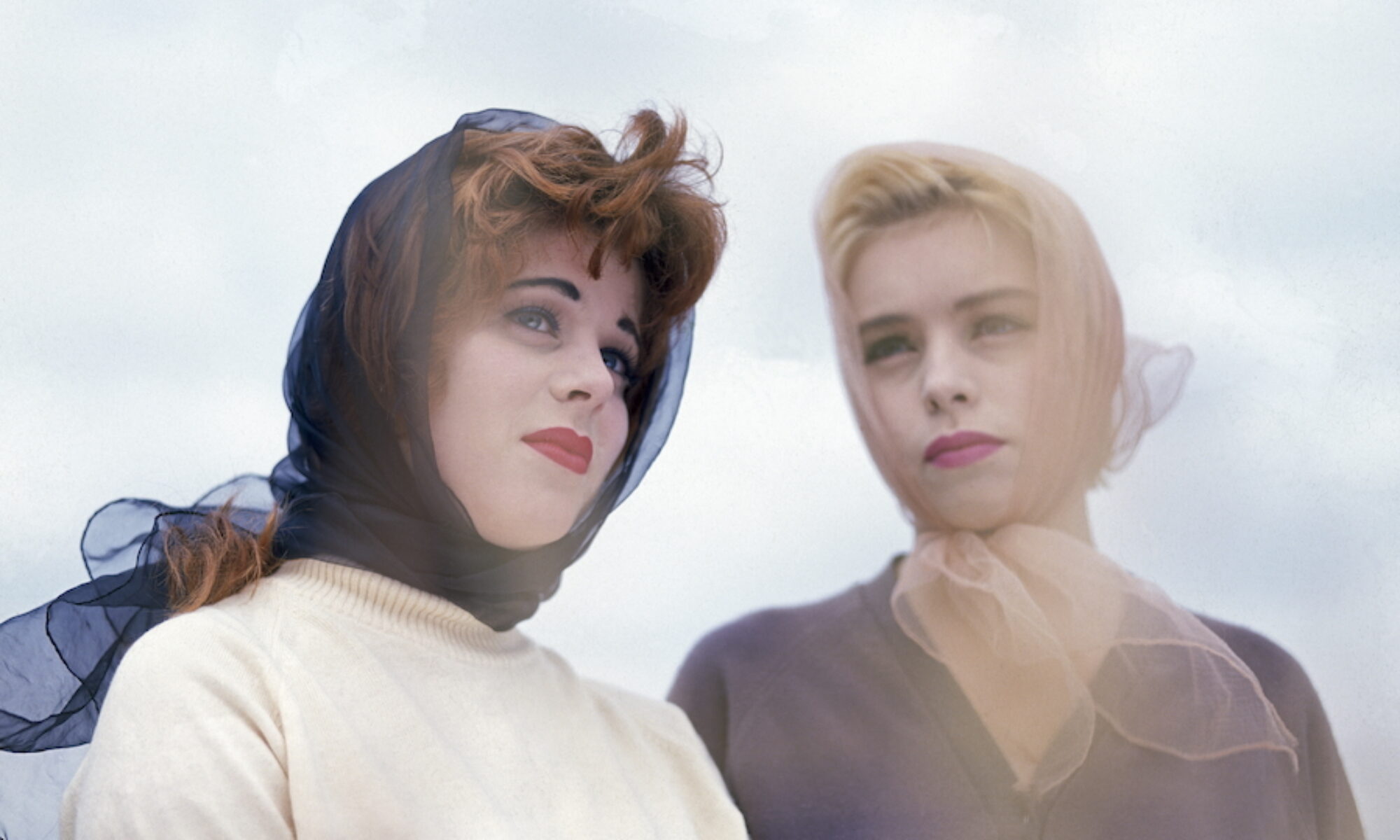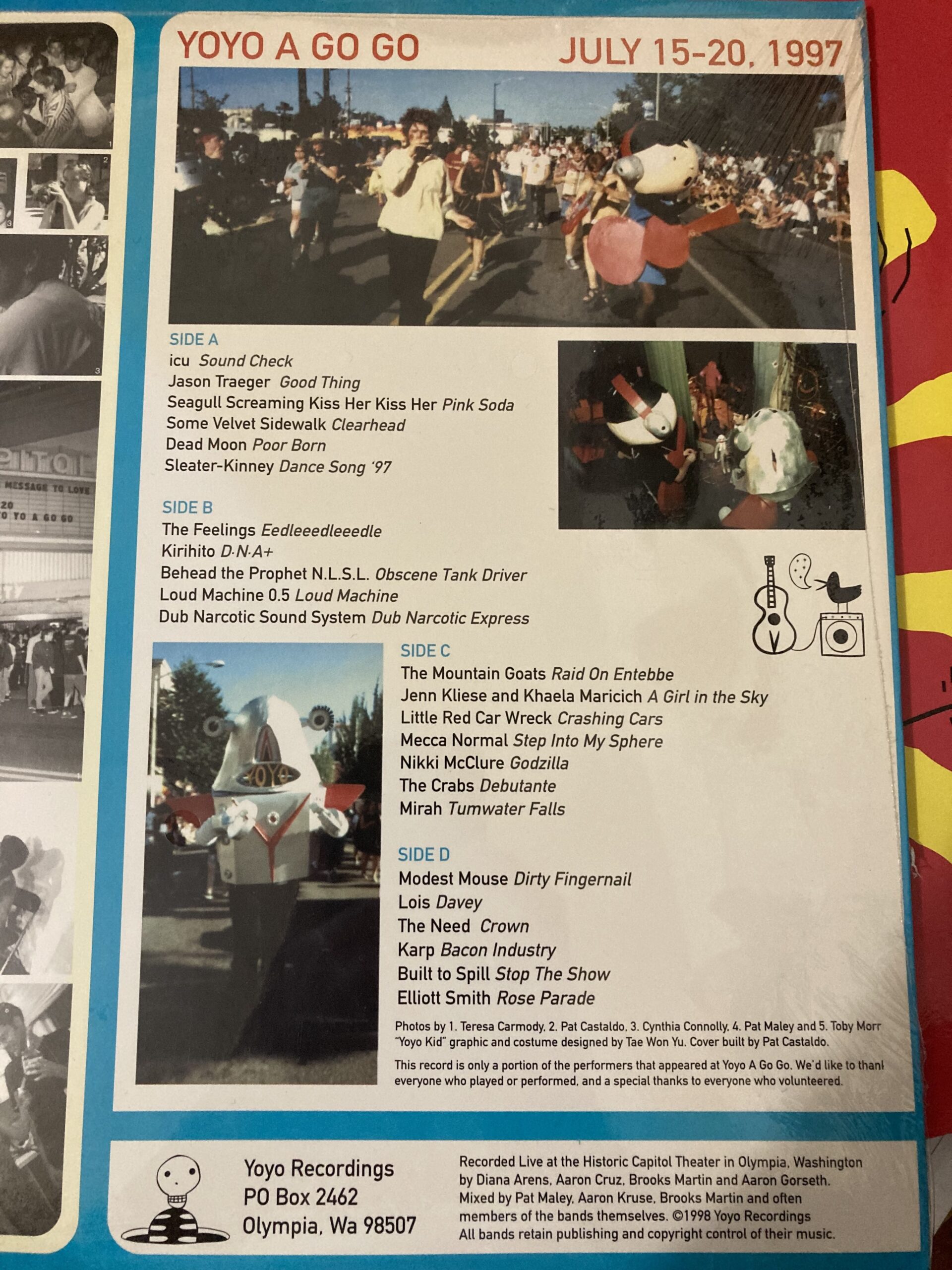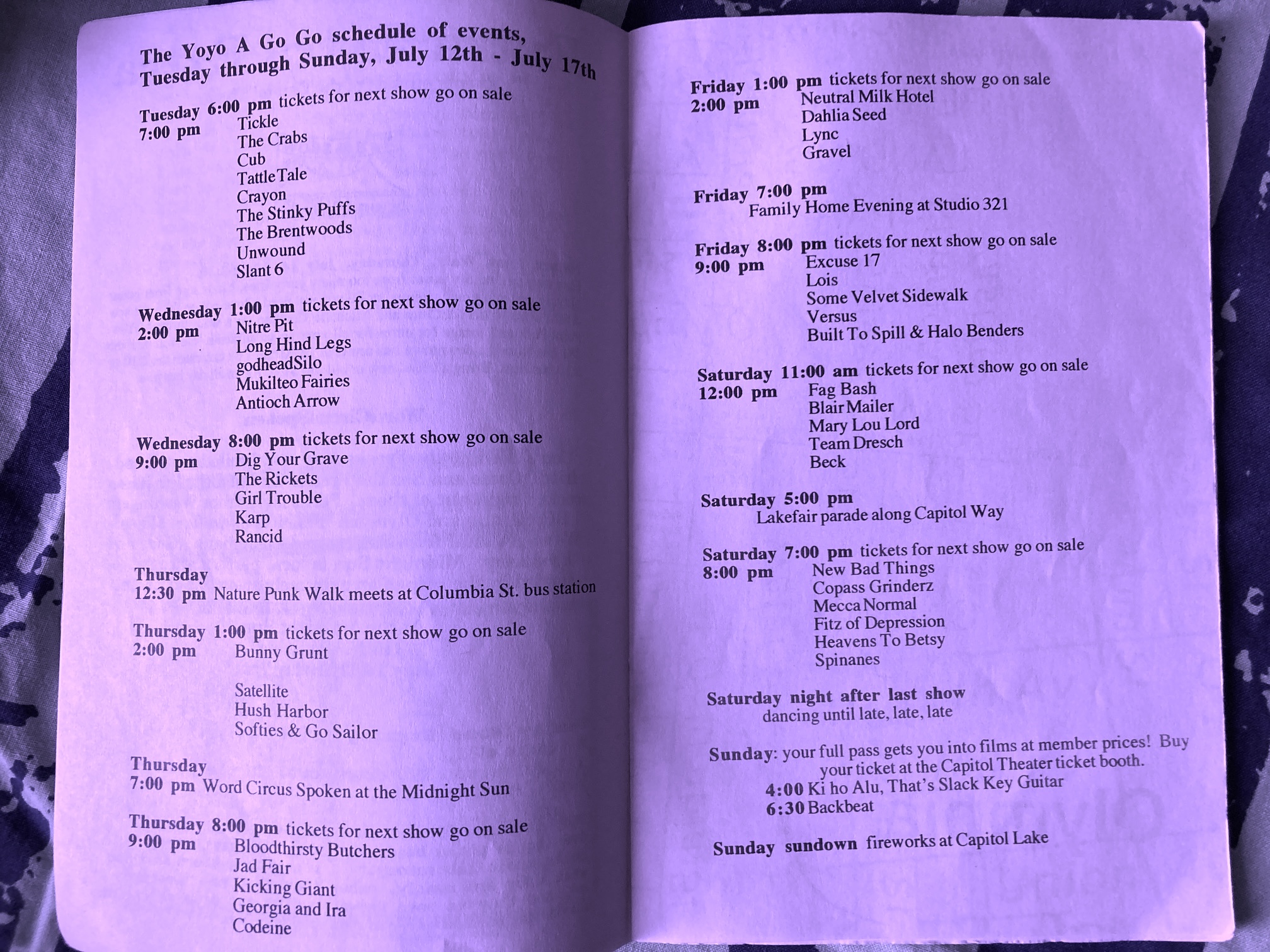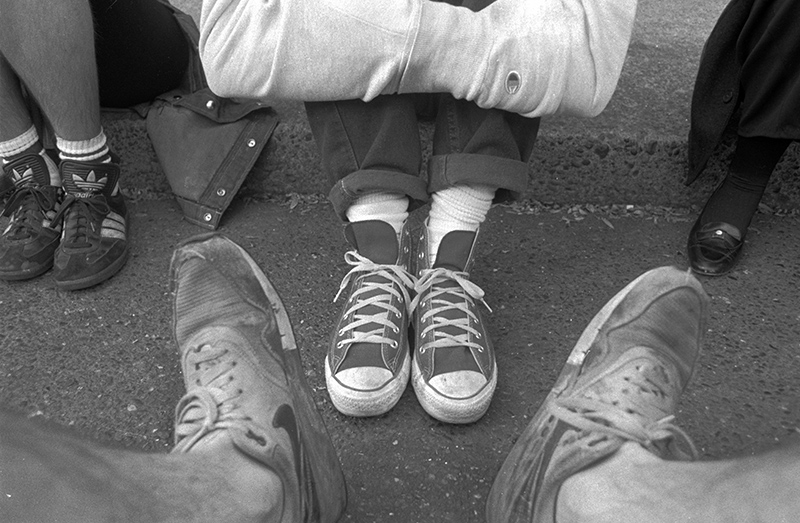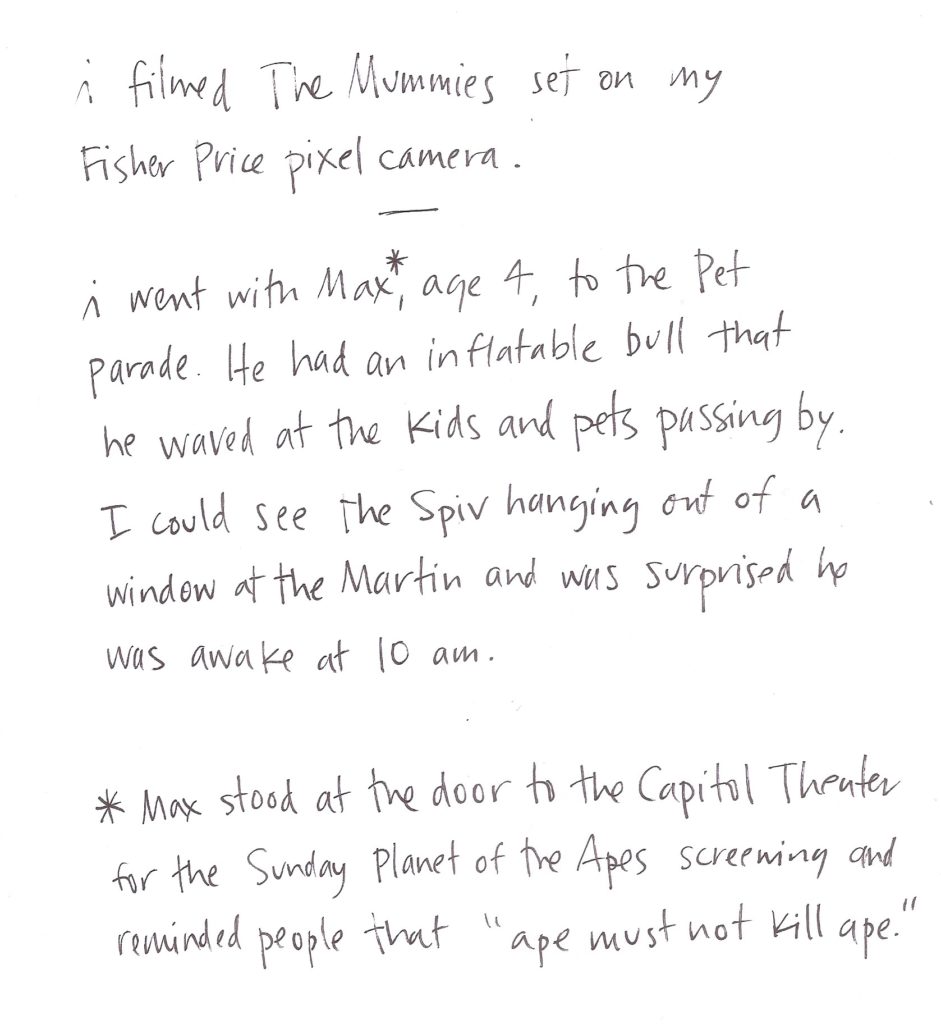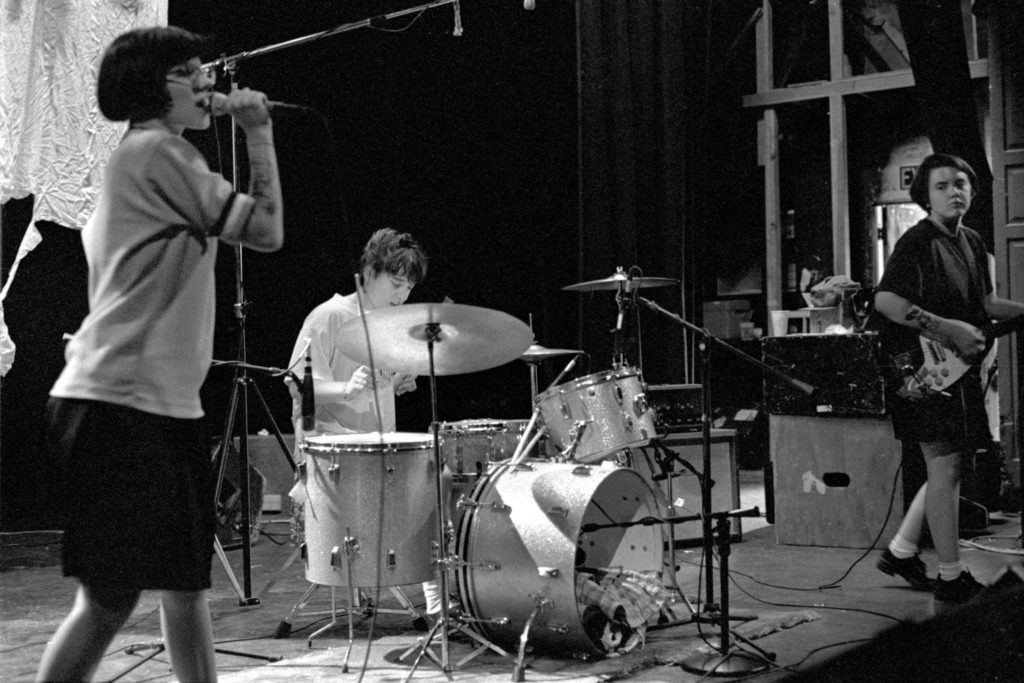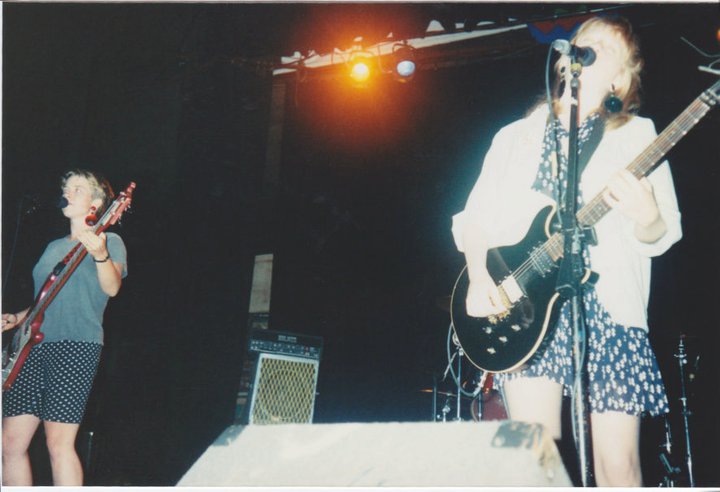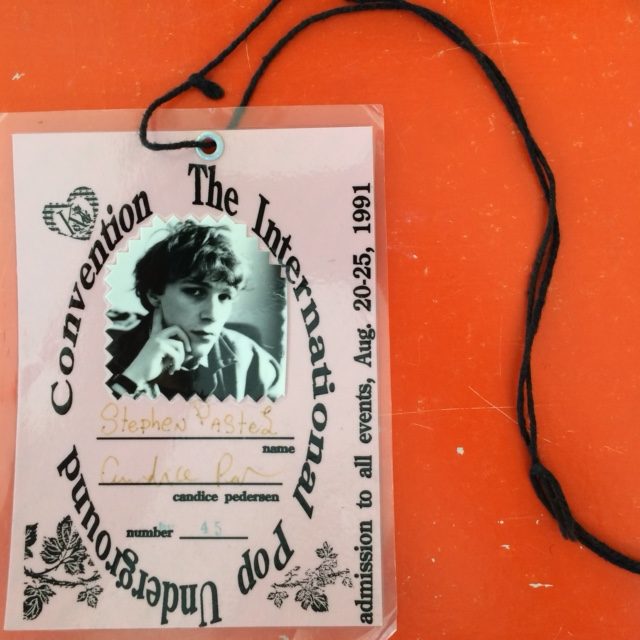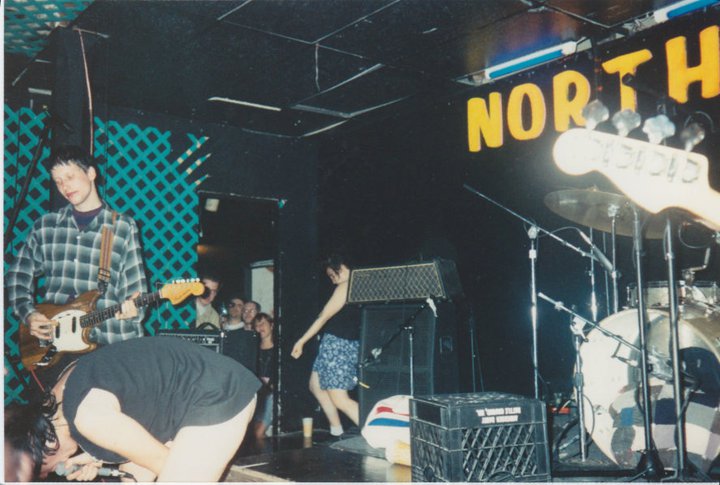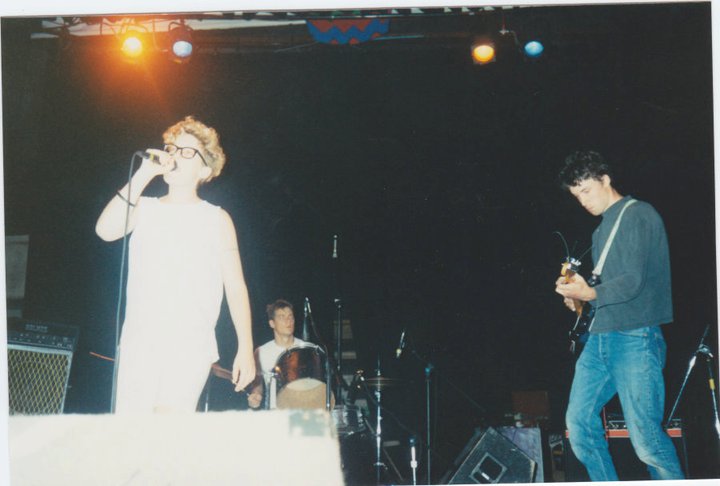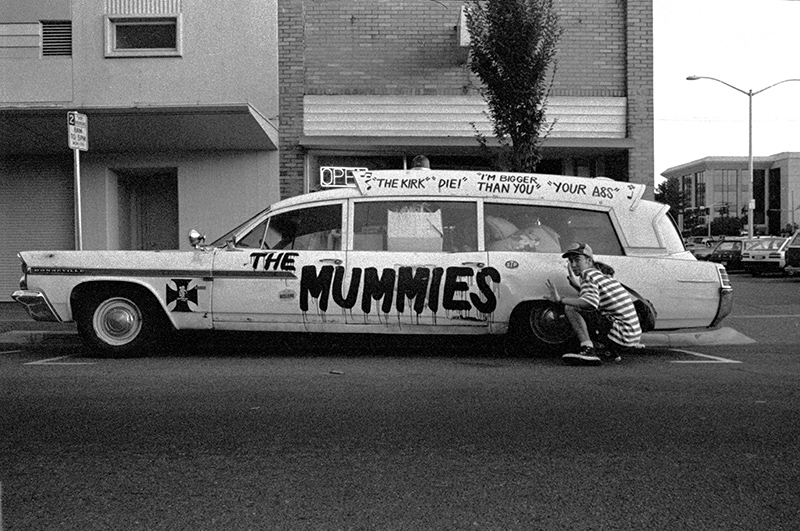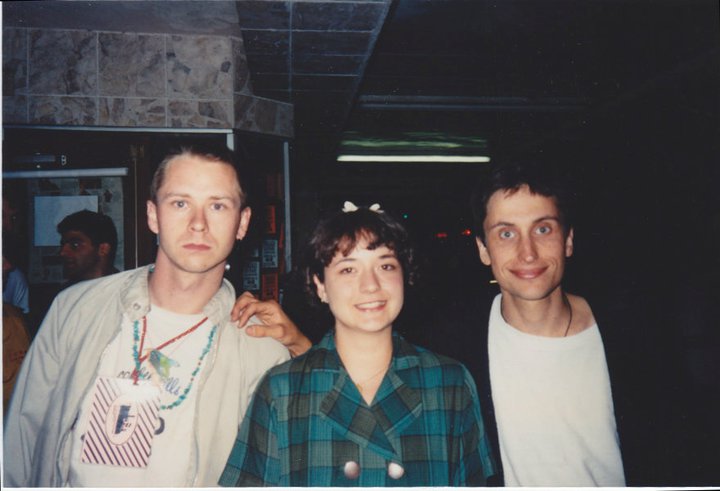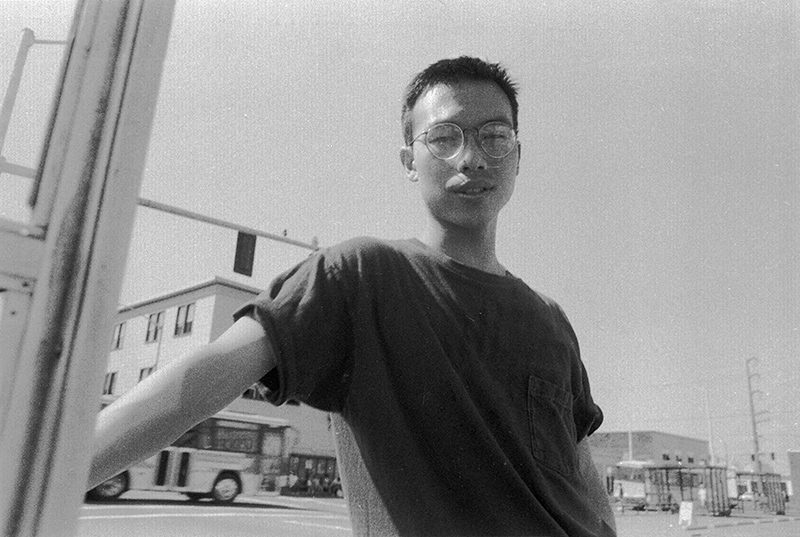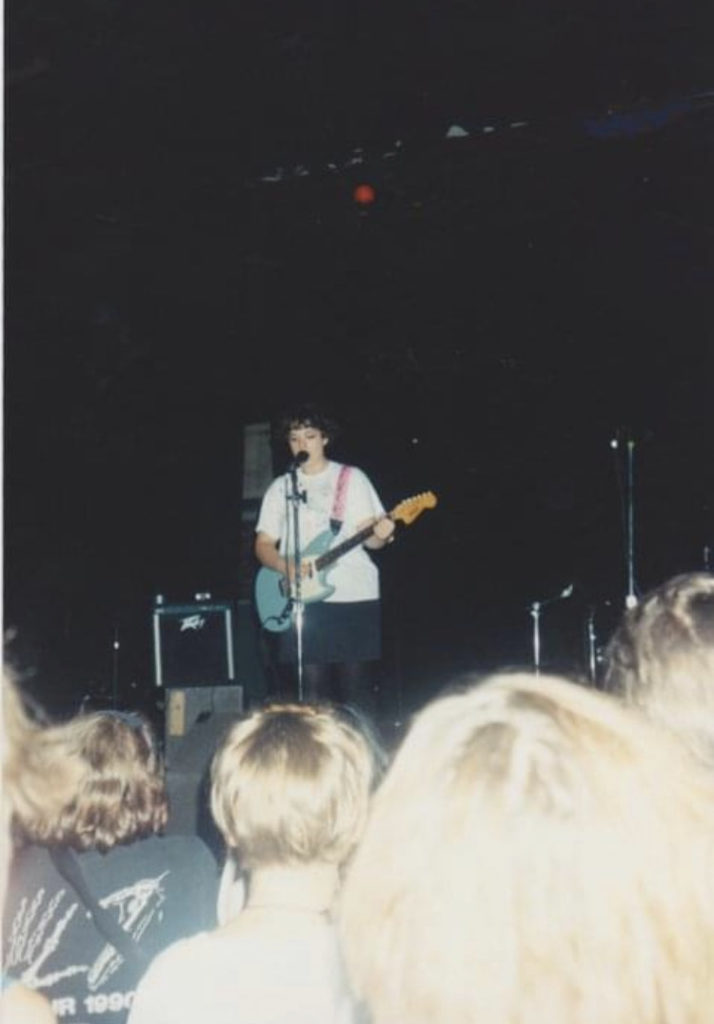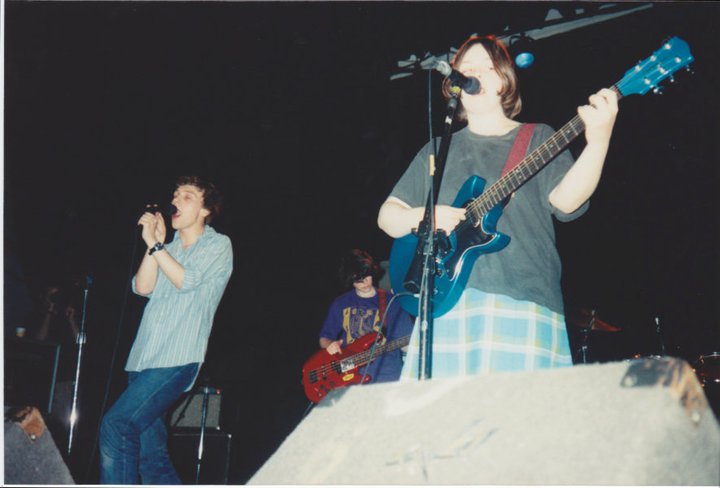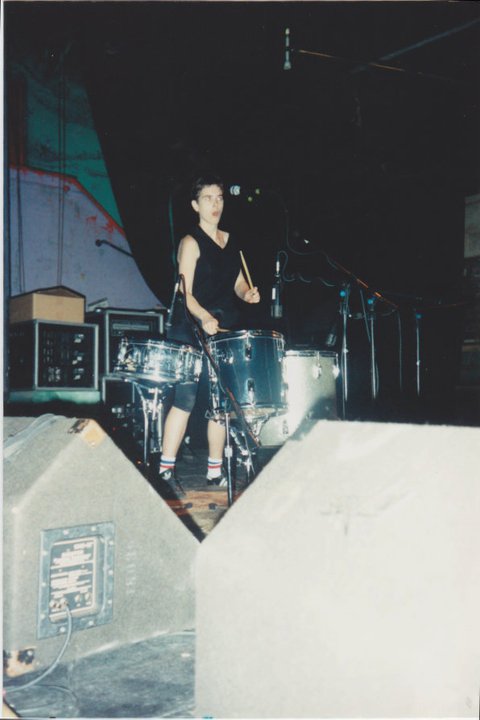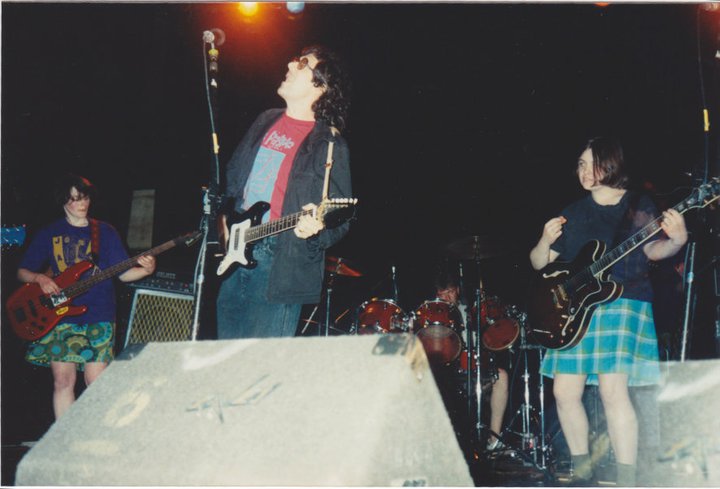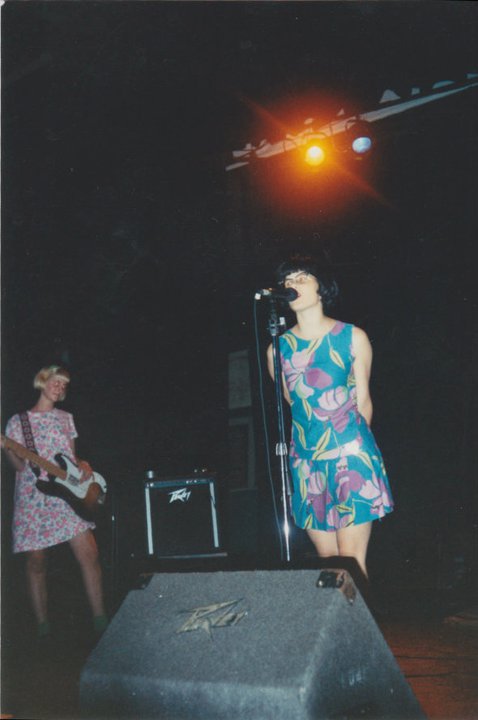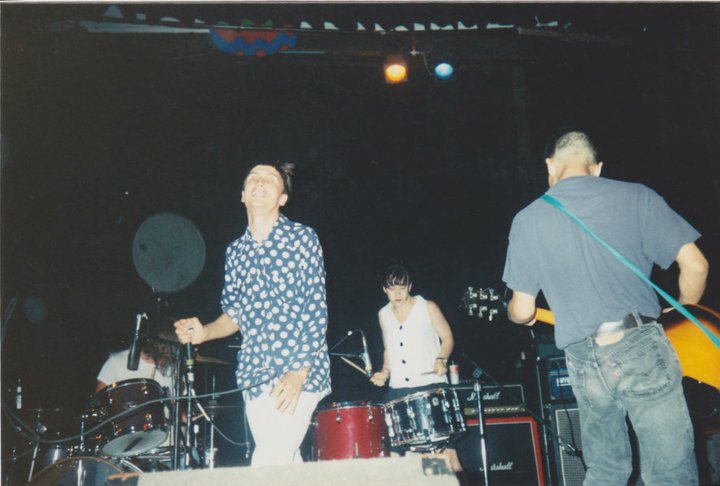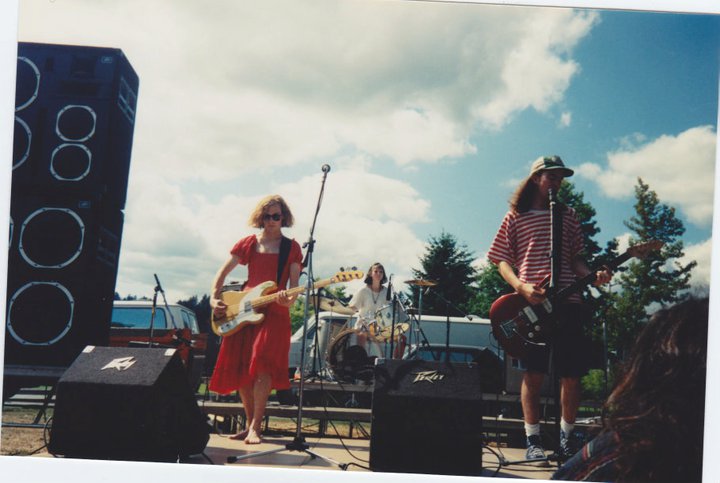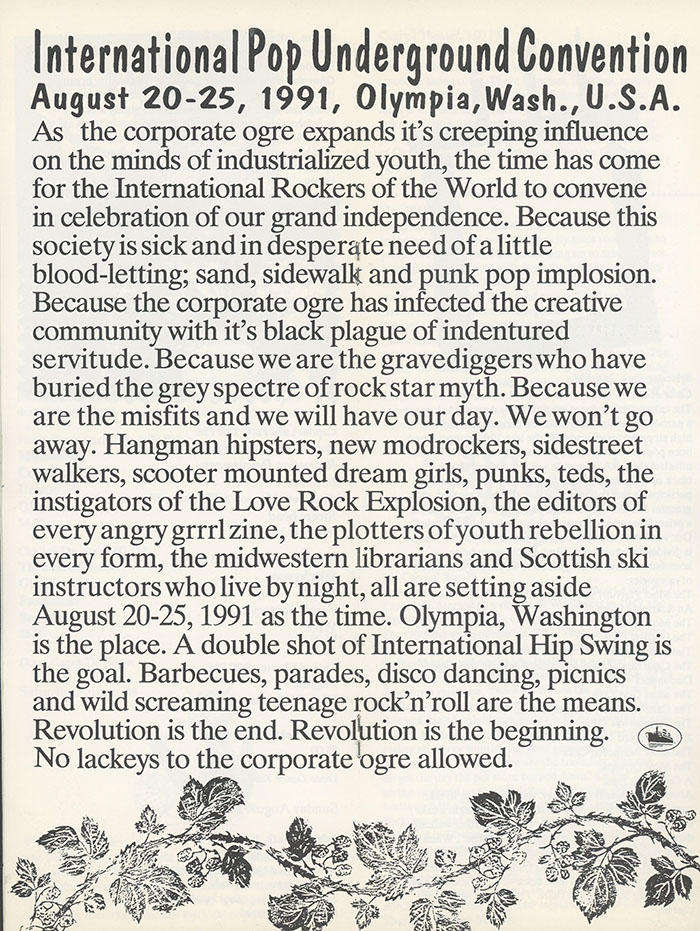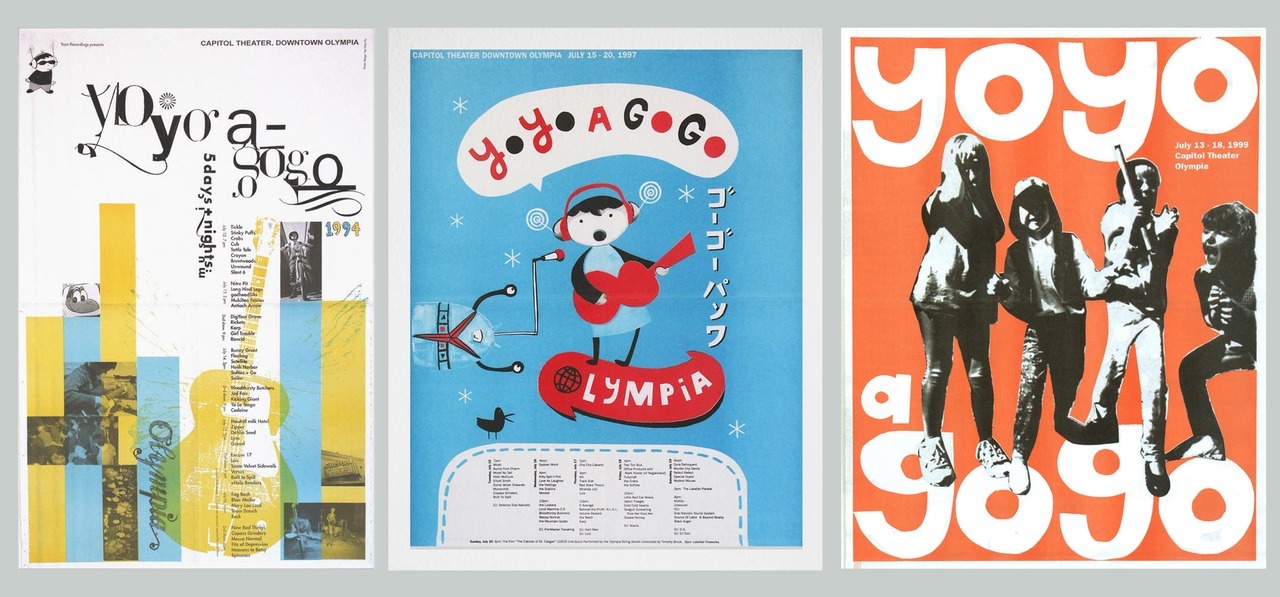
From July 12 to 16, 1994, the original YoYo a GoGo festival happened at the Capitol Theater in Olympia, Washington. It was organized by Yoyo Records’ Pat Maley, Michelle Noel, Kent Oiwa, along with Pat Castaldo, Diana Arens, Sara Lorimer, and others, and there were subsequent YoYos in 1997, 1999 and 2001. Carrying on from the great tradition of pop festivals like the International Pop Underground Convention (1991) and Lotsa Pop Losers (1991), it featured a ridiculous lineup that included superfeminist superstars Team Dresch and Mecca Normal, loud bands, quiet bands, punk bands, pop bands, see a full lineup later in the piece. We asked some folks who played, attended and organized it to share memories including Jean Smith (Mecca Normal), Jen Sbragia (The Softies), Lois Maffeo, David Nichols (Blairmailer), Nikki McClure, Tracy Wilson (Dahlia Seed), and Sara Lund (Unwound).
READ PART 2 HERE
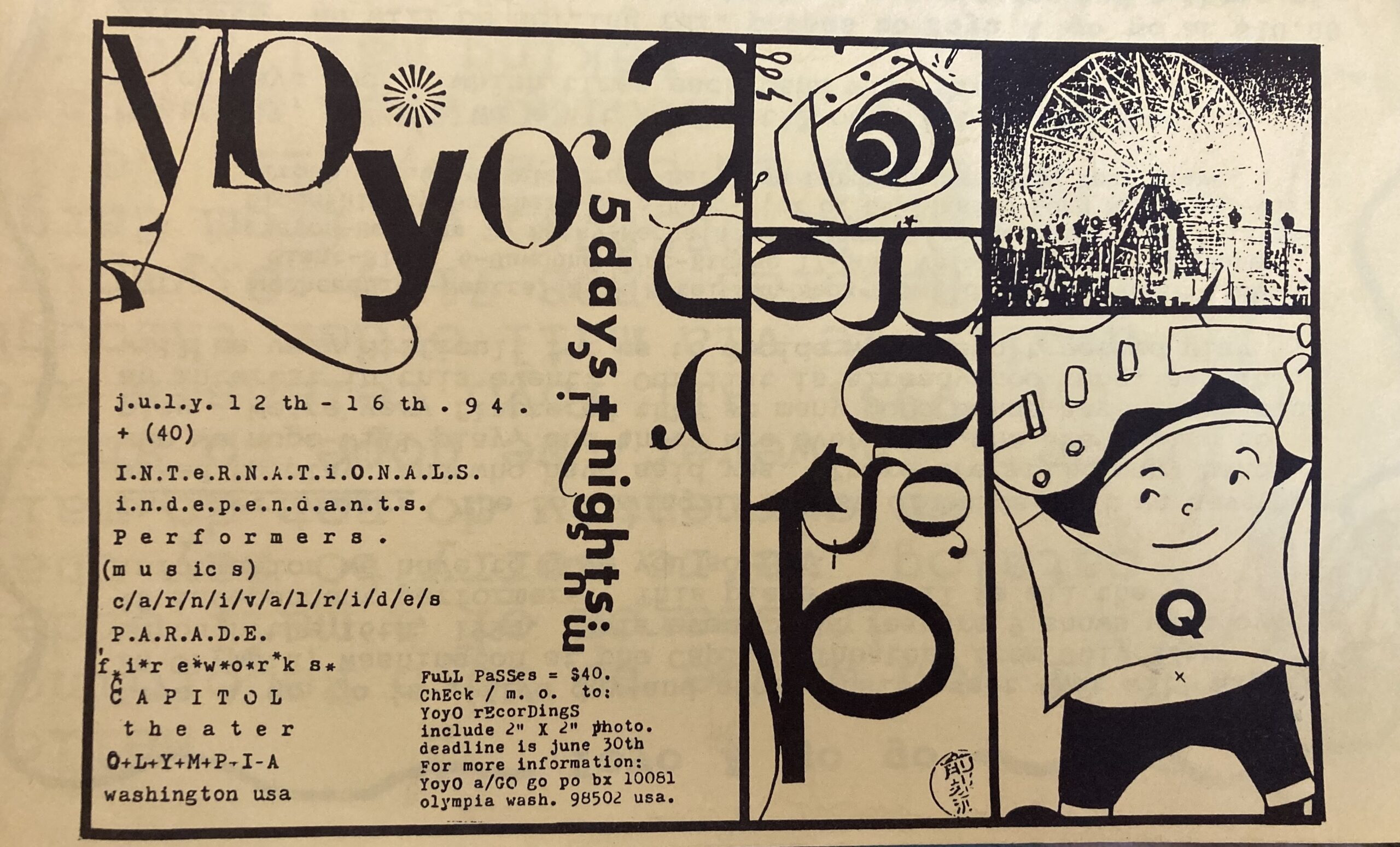
Chickfactor: Did you attend YoYo in 1994? What made you want to go?
Jen Sbragia (The Softies): Yes! I’d never been to a festival like that and was very excited to be included and see a lot of bands.
Nikki McClure: Yes. It was across the street from where I lived.
Tracy Wilson (Dahlia Seed): Yes, I attended and played that year. The lineup was a dream come true and I can’t imagine any self-described indie rocker wouldn’t do whatever it took to be at this special event.
Gail CF: I sure did. I think I built my summer vacation around it, in the days when people had such a thing as paid vacation at their jobs.
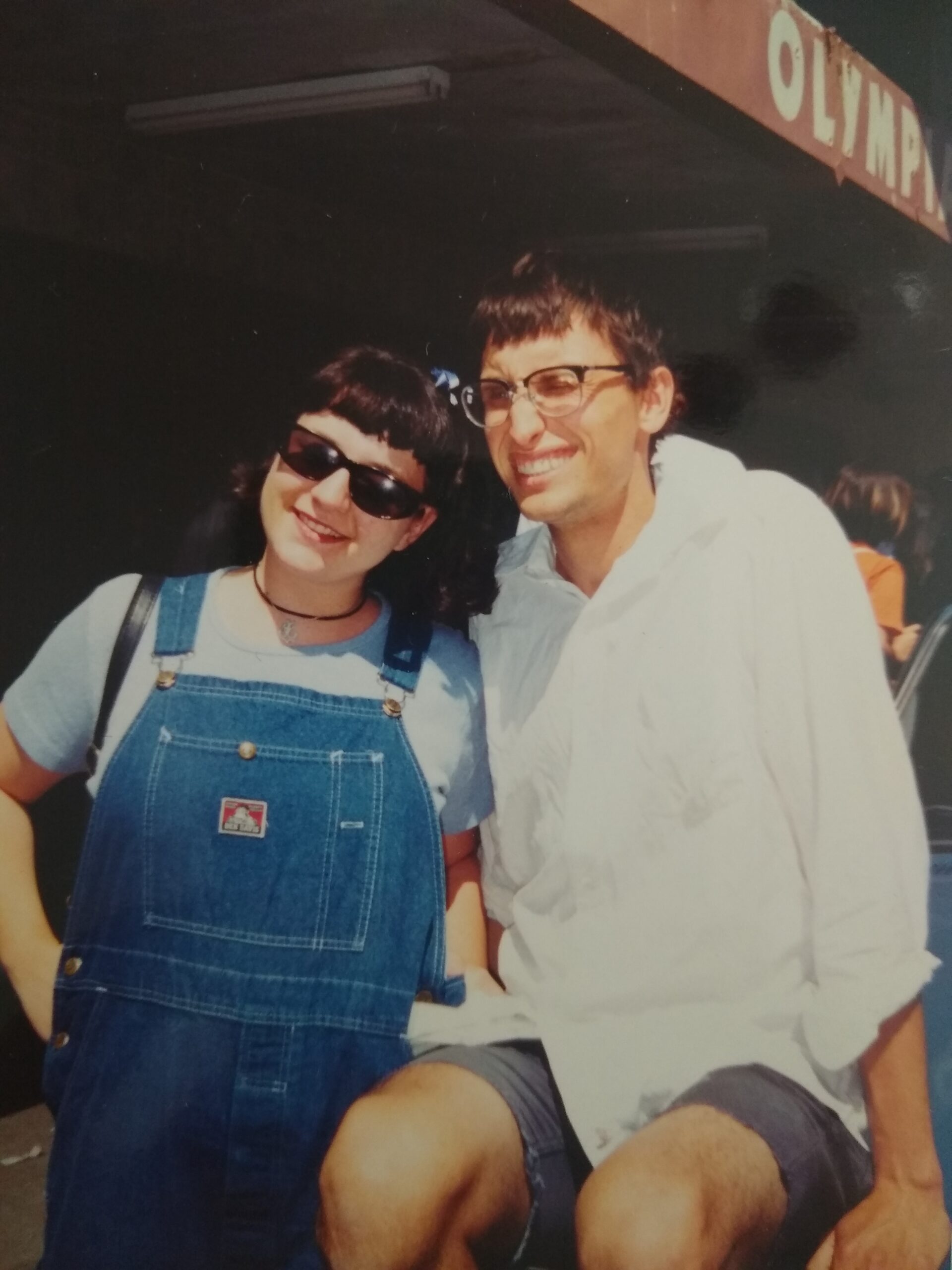
In what capacity were you involved with YoYo a GoGo 1994?
Sara Lund (Unwound): I played at YoYo a Go-go in 1994 with Unwound. I had been in the band for about 2 years and we had released our 2nd record (with me) New Plastic Ideas that spring. We did a lot of touring that year – I think we went on our longest ever tour. 10 weeks all over the US. I’m pretty sure the YoYo show we played front stage at the Capitol Theater was the biggest crowd we had played to at that point.
I had attended the 1991 International Pop Underground festival my first week in Olympia, before I knew anyone. This festival felt very different to me as I was now a 3-year resident of Olympia as well as being in one of the relatively better known bands in town.
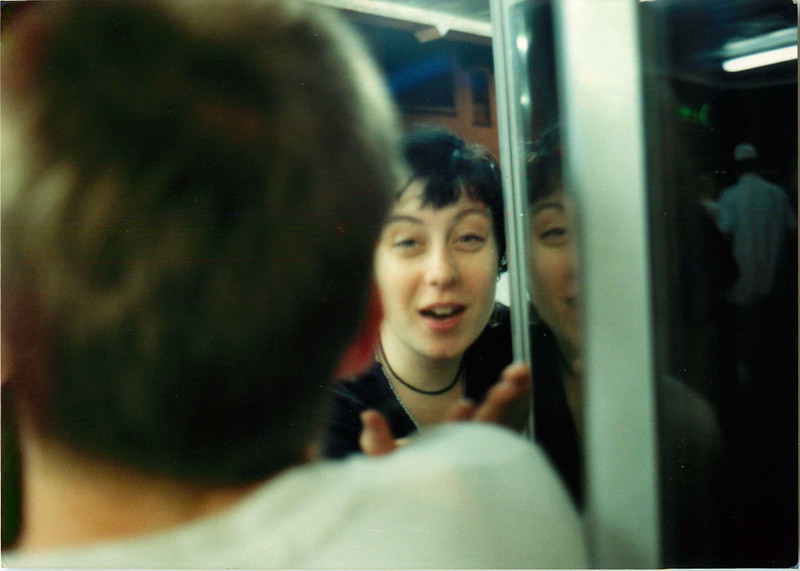
It most definitely felt like the town was suddenly overrun with looky-loos, coming to see what all the buzz was about. It was so weird that Beck came and played! He had had a huge hit with “Loser” and it was like cognitive dissonance to have a pop star wandering around this very anti mainstream, major label pro DIY scene.
I also feel like this festival made a TON of people move to Olympia. People got the impression from the festival that Olympia was this super fun, hip playground all the time. What most people discovered when they moved there was that Olympia was just a small town with not a lot going on and locals that weren’t particularly welcoming to a rush of young hipsters, polluting the scene. That was not true for everyone, but I know a lot of people moved there and did not last long once they realized daily life was nothing like YoYo a GoGo.
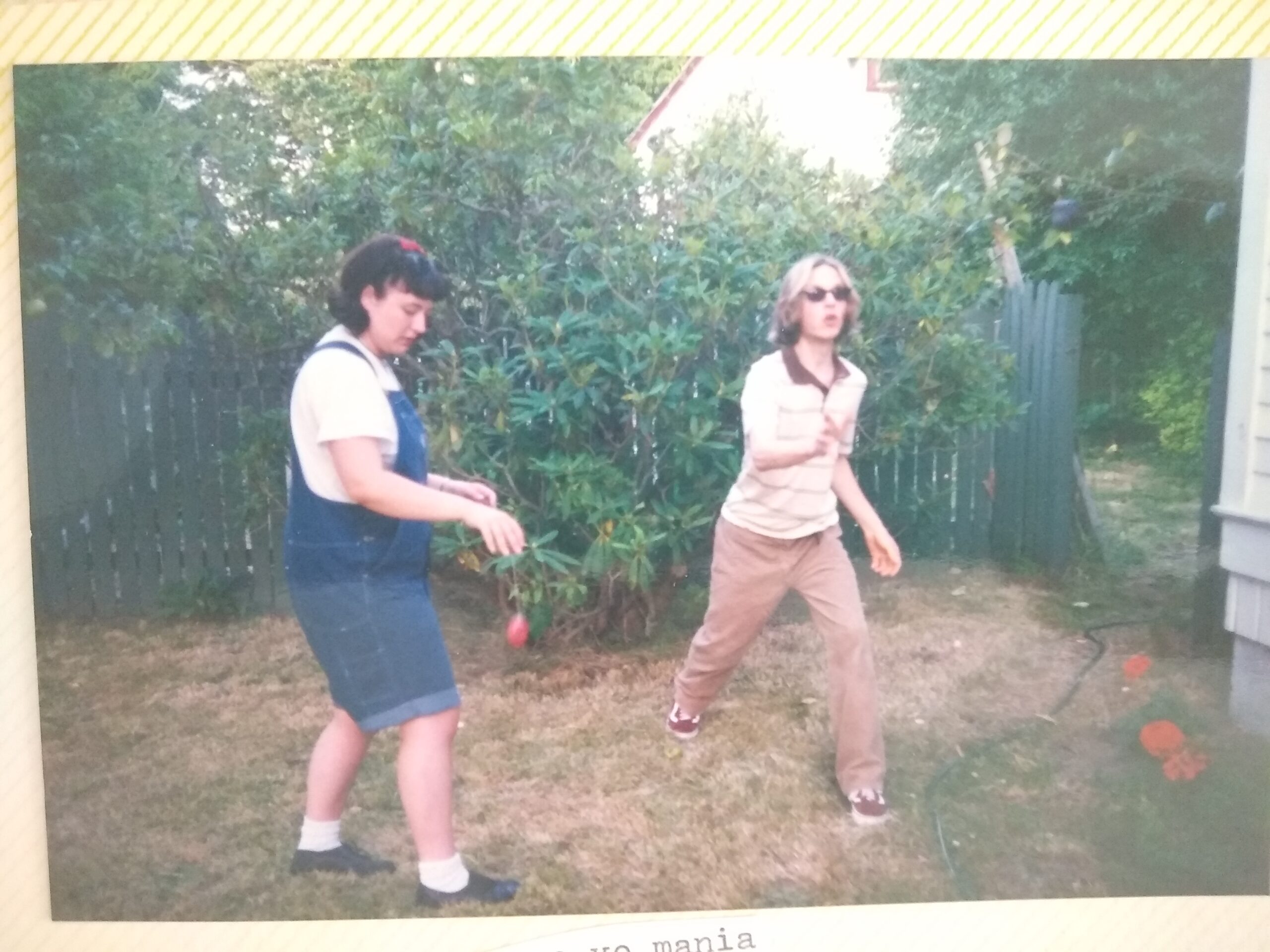
Jen: The Softies and Go Sailor were invited to play.
Nikki: I think I named it? I remember suggesting the name to Pat Maley. I also maybe led a Nature Punk Walk? Where we caught the #81 bus to some park? Maybe what is now Squaxin Park? I hope someone out there remembers this! My memory was more focused on the making of burritos and selling them outside the theater. I was down to my last $100 and spent it on burrito making supplies supplemented with greens and nasturtium flowers from my garden patch. I’d make the burritos and then run across the street to sell them then run back to make more. I wore a kids cowboy hat and strapped a small suitcase to me, open and full off “Burritos a Go Go”. Thankfully I keep a briefly noted calendar. I made $68 the first day, $24 the next due to the nature walk. $72 the next day. And somehow figured that I came out ahead? Fed myself and some others at $2 a burrito! I took Ian MacKaye to my garden to pick more greens for the Friday burritos. I also was the Punk Rock Janitor for the theater and would clean up the stage area and bathrooms…the things one does for free movies! It was a time of scraping by and making fun out of it!
Tracy: My band Dahlia Seed was scheduled to play, but a month before, the rest of the members told me they couldn’t afford to fly out, leaving me to scramble to find a way to play without them. Michelle Noel convinced me I needed to still play so I promised her I would. I am infamously terrible at playing guitar and singing at the same time, so my co-worker Michael from C/Z records AKA Snackboy stepped in at the last minute to help me out. I taught him how to play all the Dahlia Seed songs I had written on guitar, and we played together as a duo with me singing beside him on electric guitar.
Gail CF: I went as a fan, a zine editor, photographer, documenter.
Jean Smith (Mecca Normal): Mecca Normal performed. We were around for most of the festival and went to lots of shows.
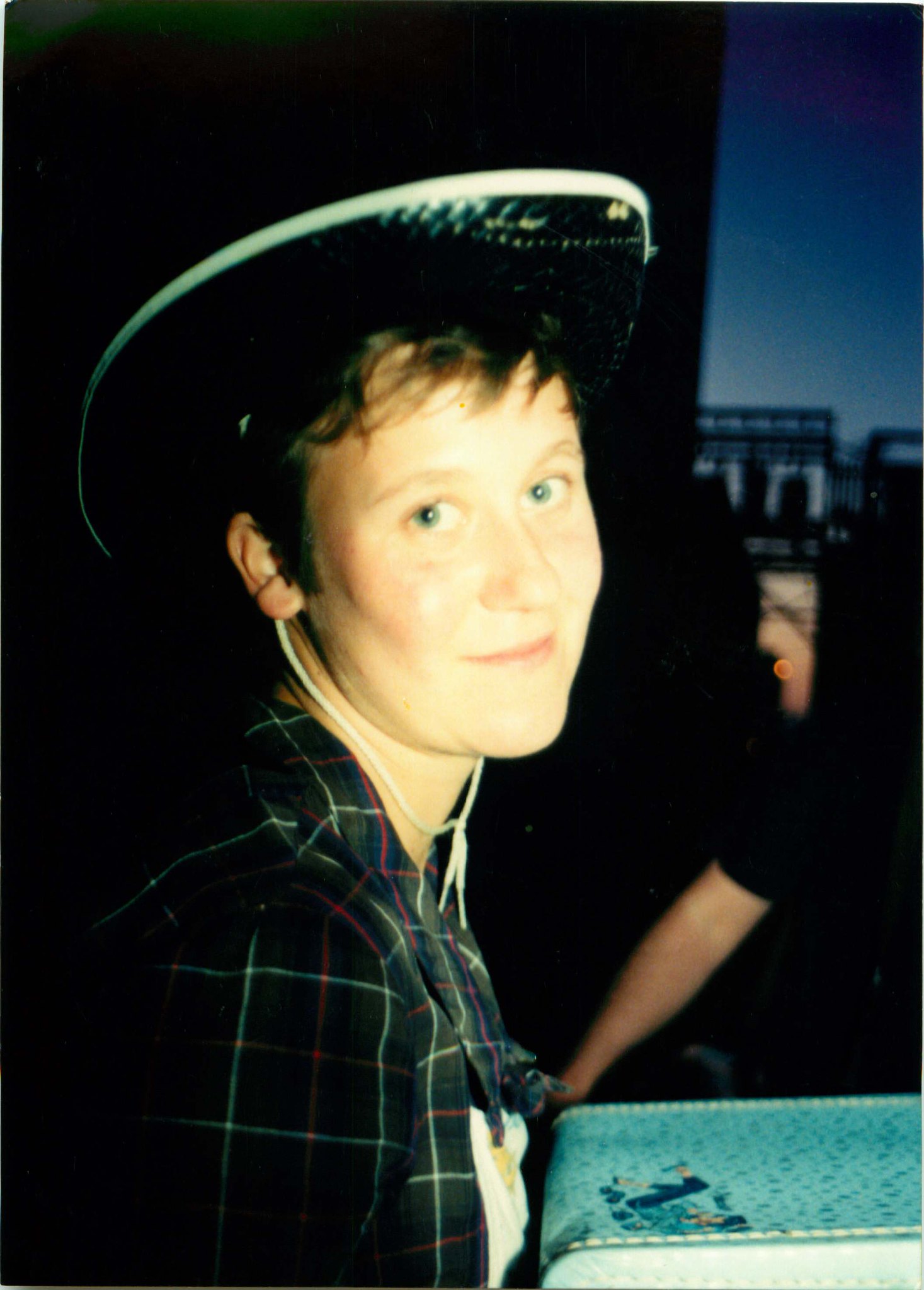
How did it feel different from other festivals at the time?
Nikki: Scrappily ambitious. Yet also low-key and not ambitious at all. Now looking back and thinking of the paths everyone has gone on since then, it was a nurturing garden in full flower and then the seedpods all popped open and scattered far, really far. I also remember the mix of bands being selected on some mysterious connections that weren’t based on musical likeness. It was really a mix of everything from quiet whispers to loudest possible electric noise. Polished and raw all a jumble.
Jen: I’d never been to one! I was still in transition from hair metal to normal music to indie pop when the IPU happened.
Tracy: I was 22 and had not been to too many festivals before – other than giant things like Amnesty International events. In some ways it set me up for a lot of future disappointment. This event was so friendly, so easy to attend and play, that it would be a shock to learn how most other music would struggle to have that kind of talent pool, that kind of welcoming atmosphere, and such wonderful support from the folks running it. I remember walking around, a very new person to the northwest (I has just moved to Seattle) and feeling overwhelmed by how friendly attendees and other band people were. Everyone was sharing addresses and phone numbers to stay in touch like the last day of summer camp or high school. I was so nervous to play without my regular band members and so many people went out of their way to make sure I felt good/proud of the performance. And wow, the food and drinks were affordable, like starving artist affordable, something I can’t say about many other fests.
Gail CF: Most festivals at that time were kinda gross and mainstream, like Lollapalooza, corporate, dorky. Not as outrageously priced as today but more expensive than something like YoYo, which was very accessible. I am guessing these bands didn’t get flown in for this, but probably appreciated the exposure at the time. Looking back, festivals like IPU and YoYo were influential on the small fests CF has set up, but again, it is ever harder to make a profit in 2024 since tech platforms are siphoning off everything they can and extracting pennies they did nothing to earn.
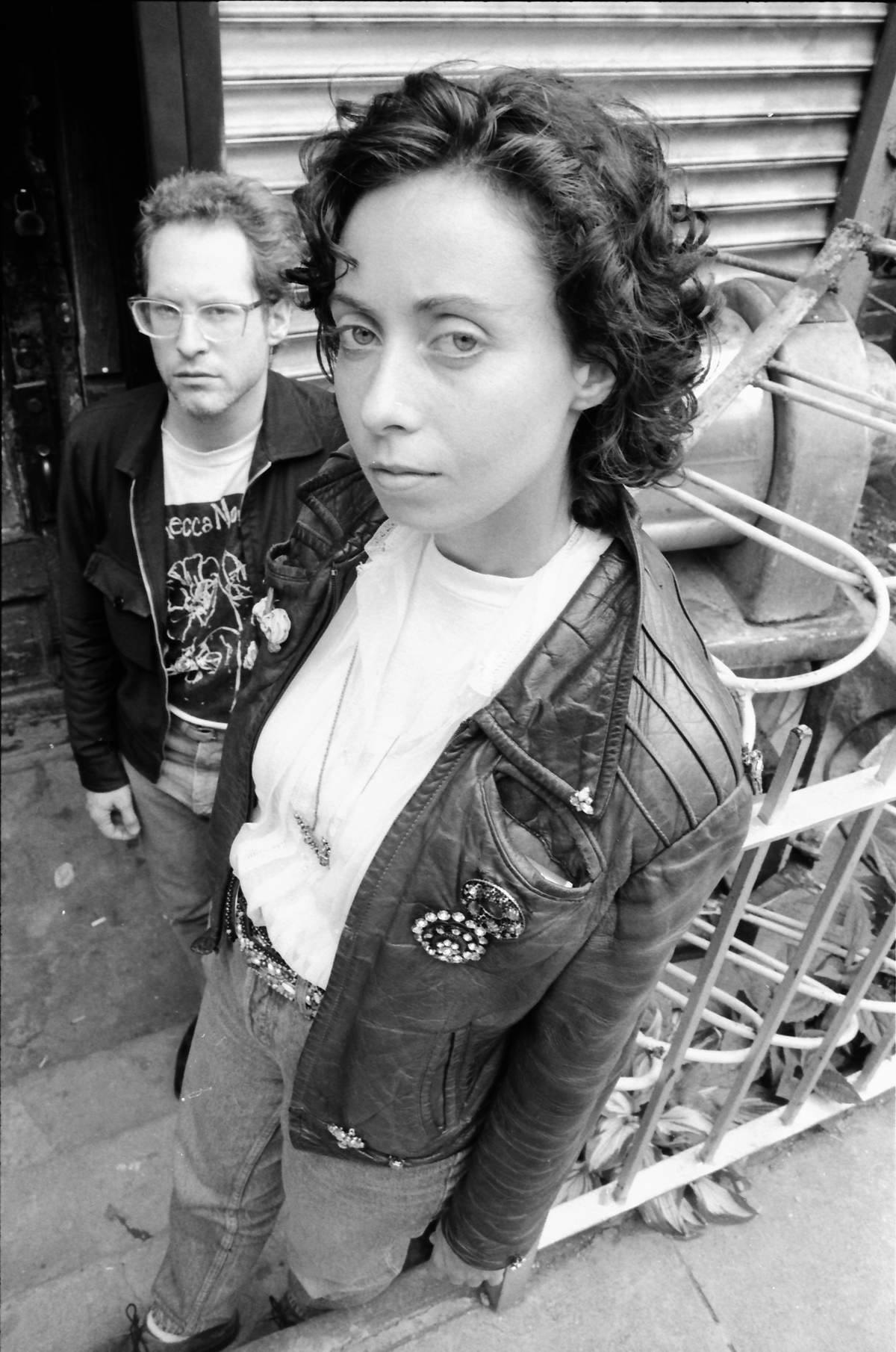
Jean: Mecca Normal toured at least once in Europe that year, playing the Fast Forward Festival in Nijmegen, Holland with Smog, Dump, Sebadoh and other specifically lo-fi bands. Even though that was a small festival, it felt very formal in terms of being accommodated at a hotel somewhere else in the city and arriving at the venue in advance of our set. I don’t think we went to shows other than the one we played. Other festivals we’ve played on tour we basically just do a one-day stop with shows on either side of it in other towns. Sometimes, as a band, you wouldn’t necessarily notice you’re playing a festival. You arrive, do the show and leave.
Festivals in Olympia were special because so many of the performers were there for more than their show day, seeing a lot of bands over the duration of the event, which also meant that various bands were meeting each other, and fans were bumping into band members at other shows and in the street. There were so many opportunities to engage and form new connections. Having said that, it was sort of nerve wracking to be so noticeable and approachable any time we were out and about.
There were so many participants, both band and audience members, downtown that we’d see people we knew all over the place. I’d say that proximity and a very small downtown core were key factors that helped to extend Olympia festivals beyond the venues to restaurants and accommodation.
YoYo Festival was, by location and association, related to the IPU 3 years prior, so expectations and comparisons were palpable. For me, there was no way it came close to the wow factor of the IPU, but it definitely had its own excellent vibe. For those who missed the IPU, they likely experienced the same thrill factor of the IPU when the town was once again filled with idiosyncratic fans and bands who, in essence, expanded even the broadest description of punk.
Being a small city, distances between everything are short. For a touring band, Olympia is a very easy town to deal with in terms of navigating, getting parking, having everything you basically need close by. It wouldn’t be the first or best place you’d think of putting on a music festival though. The IPU provided a blueprint for YoYo. That Candice Pedersen, co-founder of K Records, was able to put the IPU together and pull it off, was an astounding feat. For Pat Maley, following a similar path would likely have been somewhat daunting, but he had a lot of things working for him, including the fact that his recording studio was in the Capitol Theater.
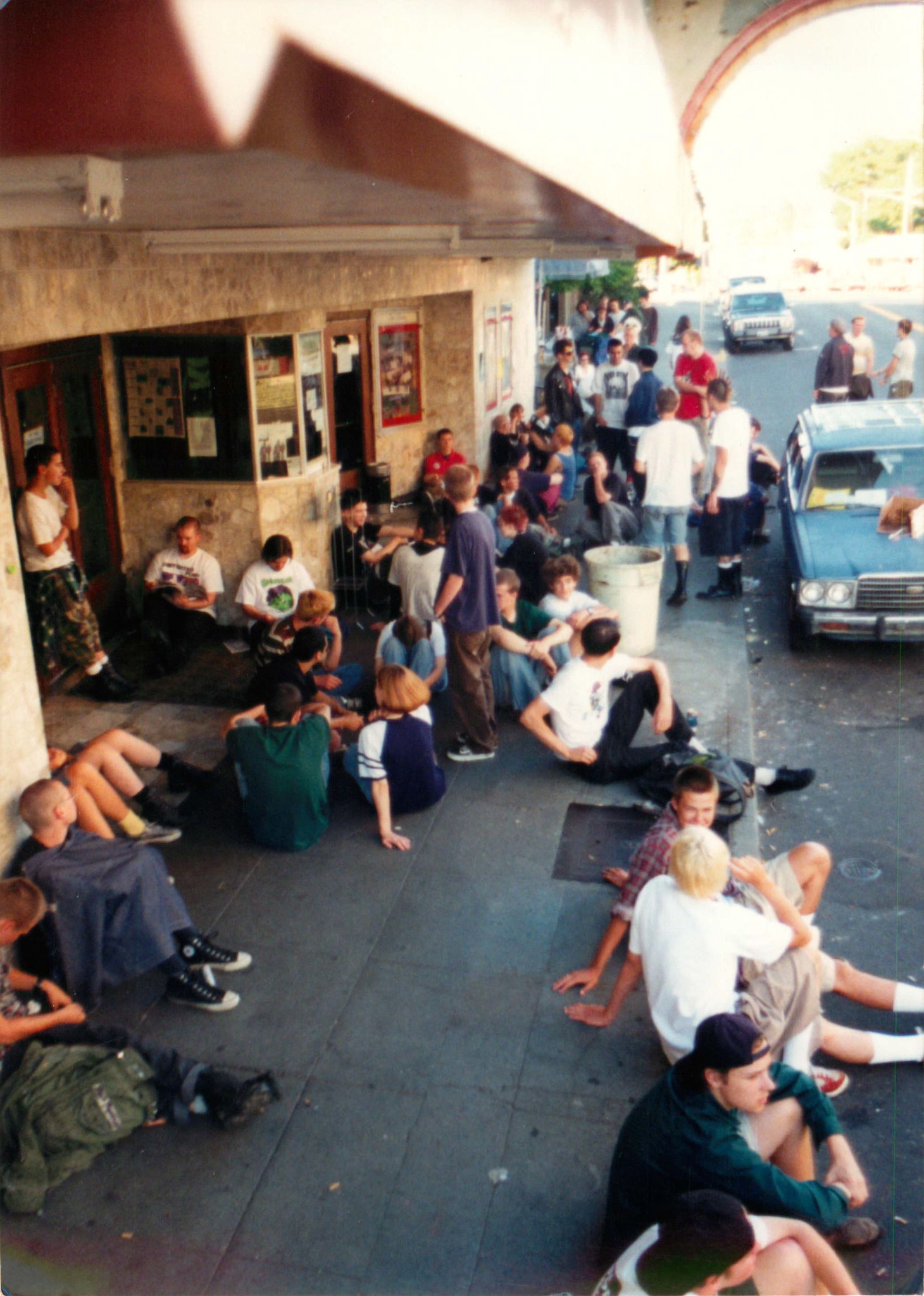
What impact did YoYo have on the city of Olympia?
Nikki: I always welcomed the focus on the Capitol Theater as the epicenter of life, instead of my town being overrun by the carnival festival of Lakefair. It was a cultural exchange: Japan! New York! DC! LA! Anacortes! The impact was of connections between all the people and places that continues today. Olympia finally has a city-owned arts center that is developing places for performances. The city also is able to fund events now with a sale tax levy. People seem creative and ambitious again. Punk Theater! Community Print! And there are plenty of show flyers in the window of Rainy Day Records. AND the Capitol Theater is turning 100 years old this year.
What did it feel like to play YoYo?
Jen: I was always terribly nervous.
Tracy: Dahlia Seed was still a relatively new band, on top of being my first serious band, so I had never played something so big before. I WAS TERRIFIED. To soften the blow of what Snackboy and I were certain would be a disastrous performance, we went to the Oly brewery and got these little beer cookies to throw out into the crowd. We spent an alarmingly long time throwing out cookies before we played, but it seemed like people were wildly excited about them. It was a nice way to ease into our less than perfect set as a brand new two piece trying to play the songs of what was typically a well practiced 5-piece band. We played the day that bands like Built To Spill, Lois, Neutral Milk Hotel, Lync, Halo Benders, and Versus played, so needless to say, as a kid who was buried up to their ears in an obsession with DIY/underground music, this was one of the best days of my young life. I will never forget the sound of a theater filled with people clapping after we played the first song. I had dreaded that moment for so many months because I was so new to performing. The anxiety leading up to our performance was all consuming. After we completed that first song, even with all its flaws, the audience gifted us the support to feel not just really heard, but appreciated.
Jean: It was great to be on a giant stage in front of a big audience of people who were probably going to like us well enough. Because our friends were putting on the event, we felt supported in all ways. So having to assert ourselves as we likely would in regular clubs wasn’t an issue. Battling with typical soundmen in clubs tended to be tiresome after a long day of driving.
It was an honour to be included and, considering Olympia was like a second home to us, it was somewhat emotional to play a big show there. We’d already been around for 10 years at that point, so we wanted to represent our reason for becoming a band in terms of songs that meant something to people as well as playing new material.
I often think we give slightly better performances where there’s a sense of opposition, whereas, in a setting like YoYo, it may have seemed just slightly too friendly. Also, because I tend to look directly at people in the audience, I’m sure I would have been a bit distracted by seeing people I knew who I didn’t know would be there. While singing about various social injustices, seeing someone I like in the audience might set off a series of reactions in me that might not essentially fortify the performance. Wanting to jump off stage and hug someone was contrary to an angry song about a woman’s right to walk alone.
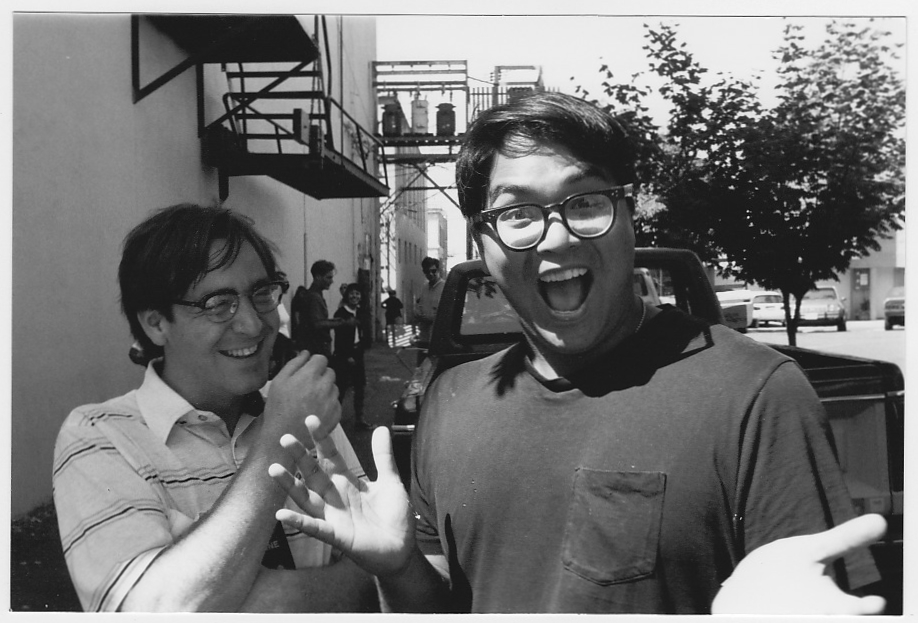
What YoYo performances stand out in your memory?
Jen: I really remember seeing Unwound the most. I was right in the front with Linton from Go Sailor. I also loved KARP.
Lois: Versus sang “Frog.” My favorite band. My favorite song.
Nikki: Slant 6, Bloodthirsty Butchers, Had Fair, Gravel, Versus, Copass Grinderz, Mecca Normal
Tracy: I recall watching Built to Spill and being in absolute awe of how someone could ROCK but also be so vulnerable and tender at the same time. I was a massive Treepeople fan and Dug was so important to me. I seriously moved to Seattle to work at C/Z because I was such a big Treepeople fan. I didn’t think Dug’s new band would ever possibly be as good, and their Yoyo performance proved otherwise. I wonder if this is how Minor Threat fans felt when they saw Rites of Spring for the first time?
Gail CF: Team Dresch, Lois, The Softies, Heavens to Betsy, Spinanes, Mary Lou Lord, Excuse 17, Slant 6, Neutral Milk Hotel, Halo Benders…
New artists discovered?
Tracy: It wasn’t so much about discovering any artist for me. It was about seeing a lot of artists play live for the first time and out of those bands, Karp absolutely blew my mind. They were so tight and had the humor and energy I always wanted from The Melvins, but never quite got from their live shows during that time period.
Nikki: Copass Grinderz
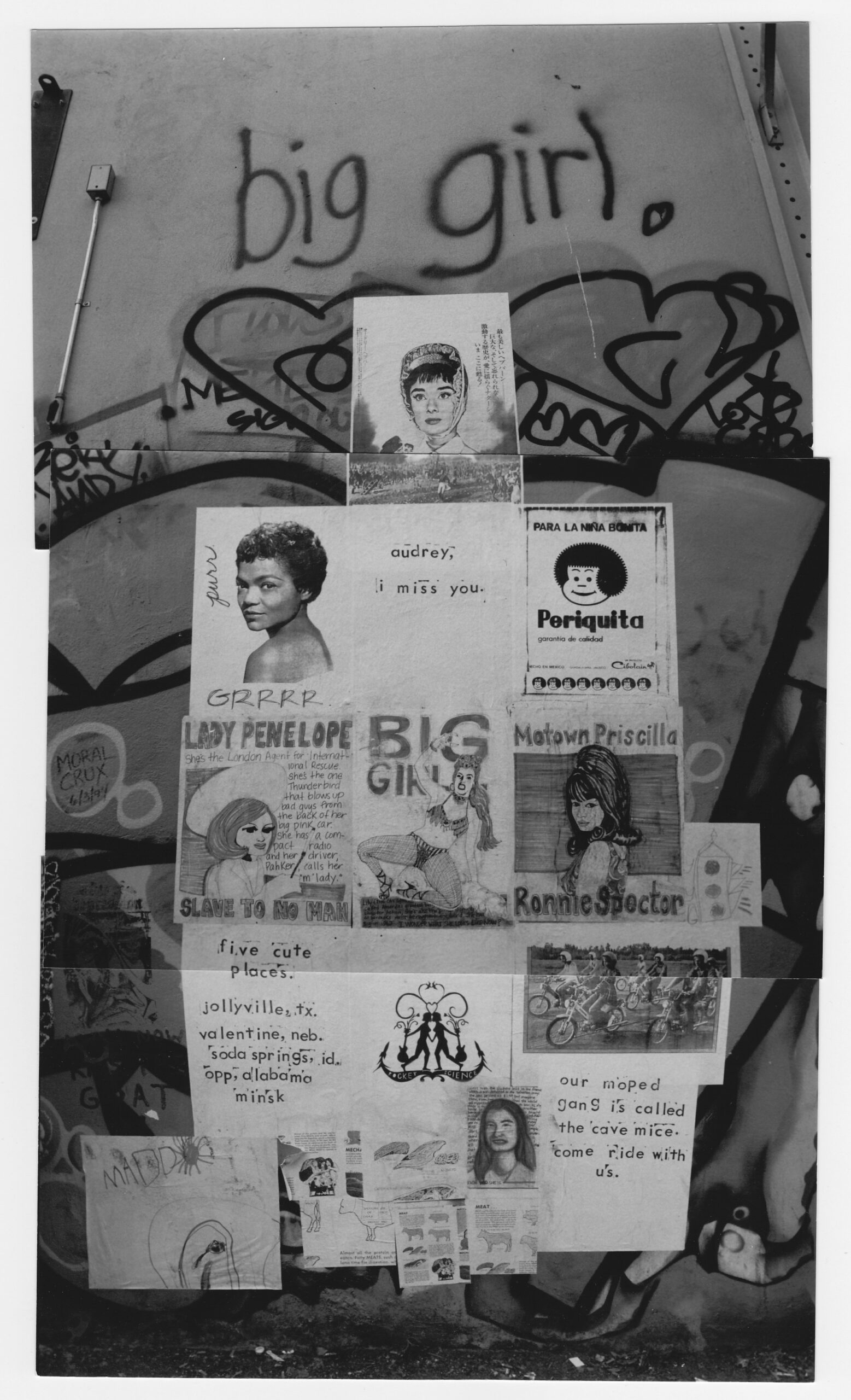
What was the vibe like at YoYo in general?
Jen: I felt like I was included in a beautiful weird secret.
Jean Smith: There can be a weird sort of alienation playing regular rock clubs in towns where you don’t know anyone, when you don’t actually know the other bands on the bill. In those cases, there may be an intensity of performance due to that anonymity. YoYo was the opposite of that.
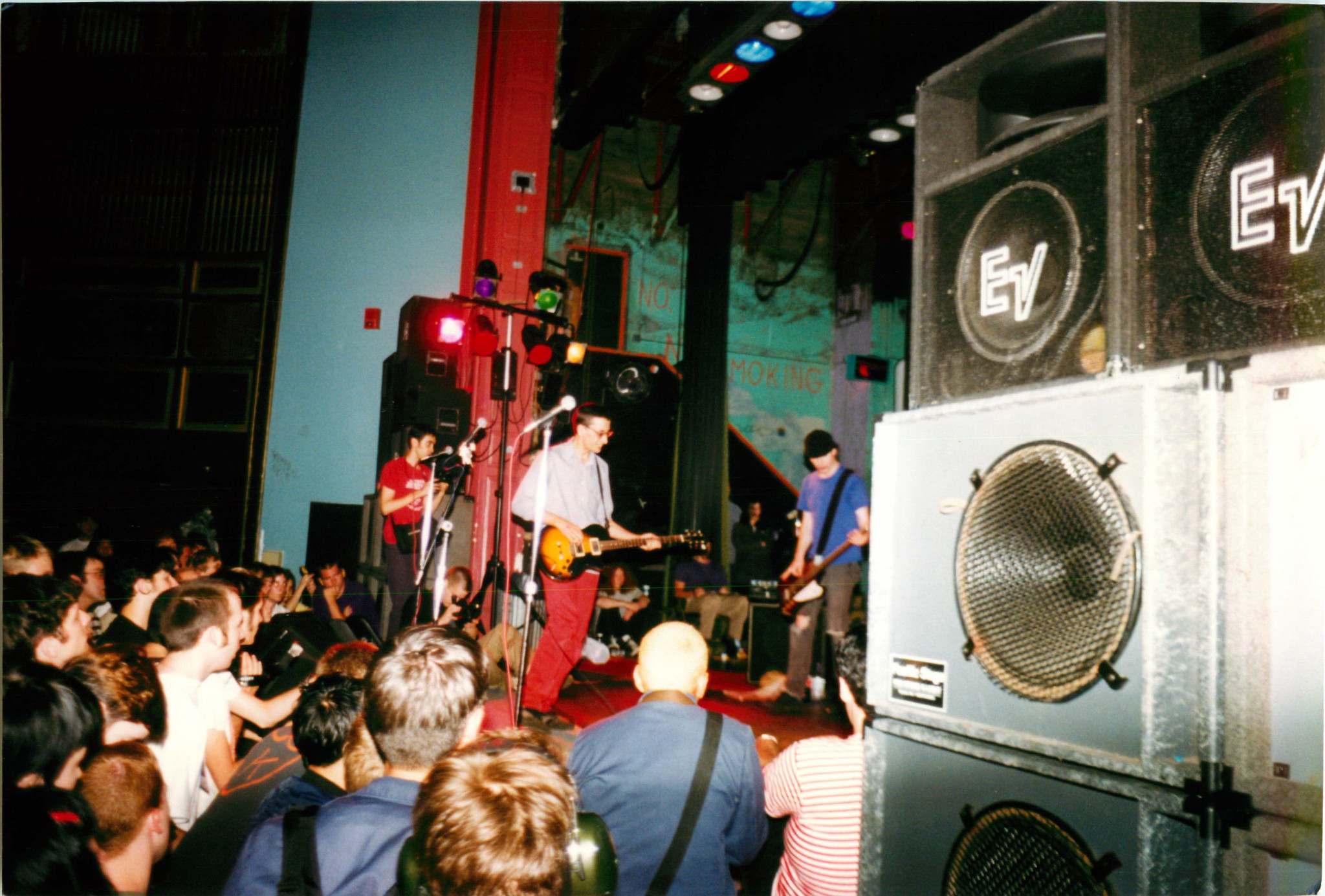
Did Yo-Yo a Go-Go get national attention?
Tracy: I think because there were bands from so many other states performing, the DIY world who was connected through radio, zines, penpal packages, and record stores all seemed in the know. Does that count as national attention?
Jean Smith: This appeared in Rolling Stone. It seems like it’s a snippet from a longer piece: “Such innocence and enthusiasm are the guiding principles of the Olympia genre called love rock. At Yo Yo, bands throw candy to the audience, and the festival organizers hand out yo-yos. Homemade and vintage instruments proliferate, as do two-and three-piece groups, a minimalism exemplified by the Saturday night performances of Mecca Normal and Spinanes.” – Evelyn McDonnell, Rolling Stone
Love Evelyn, of course, but, in the mid-90s, I’m actually not sure if it would have been published in Rolling Stone if she’d reported that a number of bands performed songs about women’s rights etc.
When national media mentioned various scenes and festivals we participated in, I usually had the impression that the individual journalists may have been compelled to report differently, but maybe their editors dictated a requirement for content that wasn’t confrontational, possibly even especially about women in music.
Mainstream mentions were usually a bit cringe. We were amazed when anything from our ilk made it to a national level. It seemed a bit suspicious. One of the few times Rolling Stone wrote about us, they said we were Vancouver Washington (as opposed to Canada). I took everything they said about anyone with a few grains of salt.
Gail CF: I was an editor at a big rock mag then but all the bands I interviewed ended up in our zine.
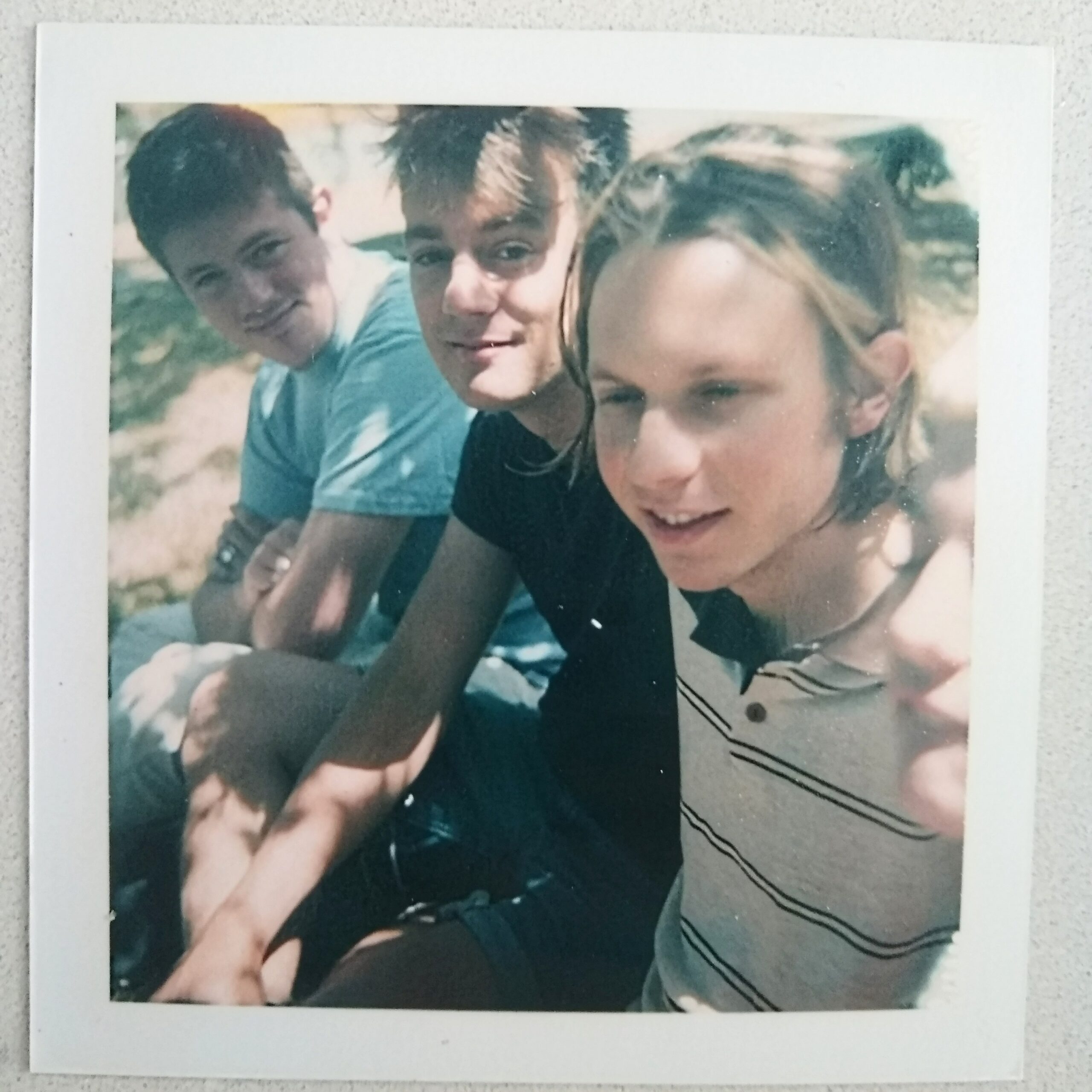
What was the Olympia/larger independent pop scene like in 1994 vs. 2024?
Lois: I’ve been thinking about this a lot because I’ve been helping put together another Olympia-centric summer festival called Northern Sky happening in early September. I think there is still a spirit in Olympia to find a fun spot and a great reason to bring people together and just try to pull it off. There is absolutely no danger of any Olympia festival becoming like Coachella or Primavera. Go through the list! IPUC, Yoyo A Go Go, Homo A Go Go, Ladyfest, Helsing Junction Sleepover: all just homemade events. No sponsors, just DIY labor and love.
Gail CF: The 1990s were the last decade where we could live in the moment. No one had smartphones and no one held things up in front of other people or looked at phones while watching shows. You were just there for the show. Sure, people could be rude and talk over the bands but probably not here. The absence of constant device fondling made people more social I think? Also people bought albums/paid for music; not every independent label was paying out properly but there was more potential for bands to earn a living from touring and selling albums.
Tracy: It is so hard to answer this question as a middle-aged person. I would love to believe versions of this event are happening all over the place today, but I also know that in today’s climate, booking a festival is more complicated and expensive than ever. Renting spaces is no easy task (insurance, rental fees, and so on), booking talent is a nightmare since so many artists (especially those with booking agents) charge 10x their normal fee when the word festival is attached to it. I think social media also inherently puts pressure on events to be so much more than just great music and so many events get lost in the weeds trying to be all the things. In turn I think the fans have changed. I grew up having zero expectations from a fest other than music, and fans now are expecting a mini Coachella from every multi-day music event with all the bells and whistles. The closest thing I can think to Yoyo isn’t so much an indie pop thing, but Goner is an example of an event that I go to almost annually that reminds me of the same genuine spirit. For me the perfect fest is 40% about the music (thoughtfully curated) and 40% about the people (fans/musicians) I will be able to spend time with in person, and 20% a city I like (and can afford to spend a few days in).
What other memories do you have about YoYo?
Lois: Yoyo coincided with Lakefair, the Olympia town carnival that had (still has!) all the clichéd accoutrements of such things: pageant queens, outdoor concerts with 70s cover bands and a parade with marching bands and floats from other small towns in Washington featuring their pageant queens, waving. Yoyo staff put in the paperwork to have an entry in the parade and so many festival-goers showed up to march through downtown behind a spray painted Yoyo A Go Go banner! The crowds that lined the streets didn’t know what to make of it and hardly anyone cheered for this ragtag bunch. But one old guy sitting in a lawn chair along the parade route yelled out, “There go the future welfare rats of America!” (A photo of Nikki, Tae and Calvin in the parade adorns the back cover of the “yoyo a go go” LP.)
I ran up to Christina Billotte after Slant 6 tore through a furious set and said to her, “Great set! It was epic!” To which she replied, “It wasn’t great at all. We played terrible. That’s the trouble with you Olympia people. You’ll clap for anything.” In my mind, that has become the best description of the Olympia music scene and the spirit that drives it. We’ll clap for anything! Thanks, Christina. (And btw, the set truly was great. What a band!)
Jen: If I knew his name, I can’t remember now what it was. Even though it was warm summer weather, he wore a ladies’ navy blue cardigan sweater, buttoned up to the top, with tight pants, low tops and a wide white belt. He had that short hair with the bangs cut straight across. I remember his nails painted with white out or white nail polish. Very emo. Before EMO existed. He didn’t say much and I liked that. I saw him every day at the festival. Eventually we spoke enough that I asked him to go for a walk around the block with me, and we briefly held hands. He wasn’t into me. I never saw him again.
Jean: We stayed at Calvin’s house. I think Dave slept in the basement in the recording studio and I slept in the backyard where I recall chit-chatting with Beck while I set up my tent.
I forget which festival it was when we bumped into each other, Gail. I also forget who you were walking with and what we all talked about briefly, but I think the conversation was in the actual street as opposed to on the sidewalk you’d just stepped off and we were aiming for. That is to say; it’s a very quiet town!
Tracy: Street busking! I think I saw Mary Lou Lord and the dude from Rancid perform like 3 other times, ha! I know I should be focusing on the bands that played, but my strongest memory is talking to so many different people from all over the country and making friends with people that I still know to this day.
David Nichols (Blairmailer): Pat Maley and Sara Lorimer came to Australia on holiday in I guess 1993. I was finishing my Arts degree at the University of Sydney but very occasionally making records with Michael under the name Blairmailer. Pat and Sara came to see Blairmailer play at the Richmond Club hotel in Melbourne. It was a well-attended show. I can’t remember who was in the band aside from Michael and me at that time, maybe it was just the two of us. Pat either got in touch later to say he was doing YoYo A Go Go or he was thinking and talking about it even while he was in Australia. Michael was very keen, I’m fairly sure that we recruited Bart and Andrew purely for the sake of the US tour, I mean aside from the fact that they were our friends and we liked them. We played a show in Melbourne with Stinky Fire Engine, The Cats Miaow were also on the bill.
Bart and Andrew were with the band for the rest of its existence, it didn’t last much longer. They were our two bass players, we had them play half a show each, which was probably about 5 songs apiece. They sat in the audience together and I think they saw almost everything and kept notes. At some time, before or after the actual Yo Yo show, we recorded an EP with Pat.
Blairmailer had two albums out by that stage, one was a cassette the other was an LP released on IMP records of Portland, a terrific label. Our show went pretty smoothly. We played a couple of other shows at the same time, one with Mocket, one with New Bad Things, both incredible.
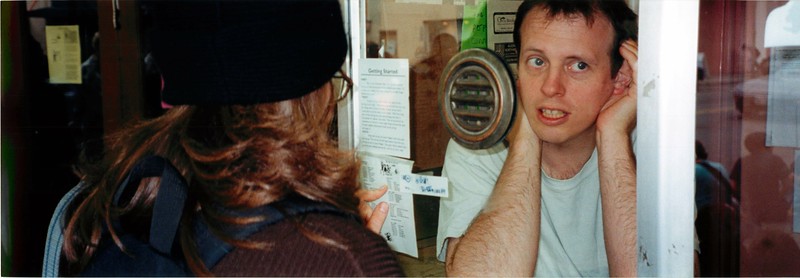
The best shows I remember seeing were Versus, who I’d already seen elsewhere and who are one of my favourite bands, Copass Grinderz, Halo Benders, but I know there heaps more, of course. It’s a long time ago. Some Velvet Sidewalk were going through a really classic period, the Whirlpool album period. Don from SVS asked Bart, Michael and Andrew, kind of tentatively, ‘do you guys like… drinking beer?’ They did.
Meeting Beck and Ian MacKaye was a real privilege and we all walked together somewhere, sometime, after Blairmailer played.
The Stinkypuffs show was something everyone felt was a historic moment, I mean apart from being very touching. I recall being told at the time that Fred Astaire had performed at the Capitol theatre but I imagine everybody has.
I remember sitting in the audience with Rebecca Gates and Gilmore Tamny and Rebecca making some kind of joke, or observation, that included telling a young man ‘I knew your mom in high school’. None of us could have even been thirty by that stage.
I think this was the time I was in Olympia and there was some kind of parade in town? Am I wrong? Is that what’s on the back cover of the LP? If so, then this was the time when I saw a group of Olympia music people in the parade, and a woman asked a policeman who they were, and he said sardonically ‘the future welfare recipients of America’.
Pat Maley used to have a slight chip on his shoulder that he was shunned by the punks of Olympia somewhat, as a hippy, and it wasn’t until Calvin embraced him that he became really ‘acceptable’ to the more pretentious or fickle Olympia types. So I imagine that there was something a little bittersweet for him in running Yo Yo a Go Go but I am certainly glad he, Diana, Aaron and Sara put it on. He has tapes of everything, I remember him saying that one day a long time into the future he’d find a way to release it all, I guess the time is not yet ripe.
Gail CF: We started our zine out of love for the East Coast (and UK) pop scene in the early ’90s. Yo-Yo was like a grand introduction to West Coast culture for me. I loved the supportive and slightly earnest West Coast people, meeting people like Stella Marrs and Nikki McClure and seeing the DIY ecosystem and “let’s create our own fun” style of putting together an event. It was world-shifting in a good way. One more memory was that Vicky Wheeler was supposed to pick me up and give me a ride to SeaTac but overslept so I missed my flight, spent the night in the Holiday Inn SeaTac but then got upgraded to first class flying home; Dave Grohl and Elliott Smith were on my flight.
READ PART 2 HERE
